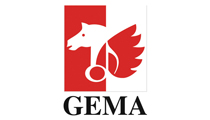This website uses cookies so that we can provide you with the best user experience possible. Cookie information is stored in your browser and performs functions such as recognising you when you return to our website and helping our team to understand which sections of the website you find most interesting and useful.
Business News Digital Labels & Publishers Legal Top Stories
German supreme court says web-blocks allowed
By Chris Cooke | Published on Friday 27 November 2015

Germany could be joining the web-block party after the country’s highest court, the Federal Court Of Justice, ruled that German law allows for injunctions forcing internet service providers to block access to copyright infringing websites.
As much previously reported, web-blocking has become a preferred anti-piracy tactic of the music and movie industries in countries where such blockades are possible, either as a result of new specific legislation, or because a judge interprets existing copyright rules as enabling web-block injunctions to be issued.
Net firms are forced to block access to specific websites which exist primarily to enable and encourage copyright infringement, and generally do so without too much moaning, though arguably with limited effectiveness. The UK record industry has become particularly prolific in the web-blocking domain since such injunctions became available here.
In Germany, though, where collecting society GEMA tried to force Deutsche Telekom to block access to a now defunct piracy links site called 3dl.am, there was much debate as to whether web-blocks should be allowed. The case finally reached Germany’s supreme court this year, and yesterday it ruled that internet service providers do have a duty to help combat piracy where online infringement cannot otherwise be stopped.
Web-blocking is usually used where it is hard to work out who is running a piracy website, or where the site is based outside the jurisdiction of the local courts, meaning even if a judge finds the set up liable for copyright infringement, it’s hard to force the piracy operation to stop, change and/or pay damages to rights owners.
From yesterday’s ruling, it seems that the German courts have set the bar higher for when web-blocking becomes an option, certainly compared to the UK.
In GEMA’s specific case against Deutsche Telekom regarding 3dl.am, the court actually said the collecting society had not done enough to identify the owner of the site, so – had the site still be operational – it would not have got its web-block just yet. In a separate legal action, the major labels in Germany have also been declined a web-block because they have not done enough to try to stop the file-sharing site they are targeting through other means.
GEMA nevertheless welcomed the ruling, saying it clarified that web-blocking was an option in Germany as a last resort tactic to tackle online piracy. It now expects further clarification from the court as to what exactly it would have to do before seeking a web-block, but we know it will involve going to some effort to identify an offending site’s owner.
Welcoming the ruling, GEMA boss Harald Heker told reporters: “We applaud the Federal Court Of Justice’s ruling. This landmark decision was long overdue, and points the way forward for protecting the rights of authors in the digital music market. Finally we have legal clarity on the permissibility of blocking access to websites illegally offering copyrighted music works on a massive scale. This is a major step forward in the fight against internet piracy”.
Embellishing on when he saw web-blocks being employed – ie only against significant piracy outfits – he continued: “We are talking about copyright violation on an enormous scale as a commercial operation. If the operators of these sites cannot be held legally responsible, access providers such as Deutsche Telekom will, as a last resort, have to co-operate in the fight against internet piracy. The Federal Court Of Justice has confirmed that this is the case in its ruling. We are aware that blocking websites is a drastic measure. However, if we have no defence against operators of these infringing sites, we must at least make such illegal activity more difficult by blocking the sites in question”.





